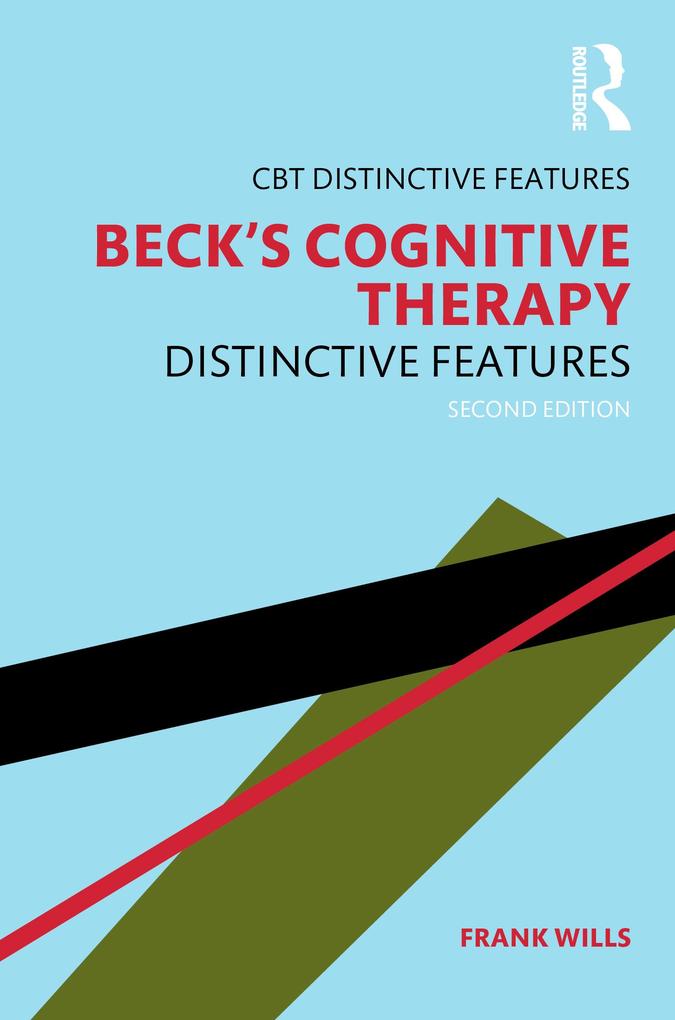
Zustellung: Mo, 23.06. - Sa, 28.06.
Versand in 3-4 Wochen
VersandkostenfreiBestellen & in Filiale abholen:
Beck's Cognitive Therapy explores the key contributions made by Aaron T. Beck to the development of cognitive behaviour therapy.
Inhaltsverzeichnis
Introduction: From Kraepelin to Beck to us; Part I: THEORY; 1. Aaron. T. Beck: His life and the development of the principles of cognitive therapy; 2. Problem areas in psychological functioning are marked out by specific cognitive themes and processes; 3. Cognitive therapy addresses a variety of levels and types of cognition: We begin with Beck's discovery of 'automatic thoughts'; 4. Cognitive distortions play a key role in psychological problems; 5. Cognitive organisation is underpinned by deep modes, schemas, beliefs, and assumptions; 6: Cognitive therapy draws richly on evolutionary theory; 7. Images also reflect key elements of cognitive distortions; 8. Cognition, emotion, behaviour, and physiology interact with mutual and reciprocal influence on each other; 9. Safety behaviours, including avoidance, over-preparation, and reassurance-seeking, play a major role in maintaining anxiety; 10. Understanding the role of negative biases in attention strengthens cognitive therapy; 11. Metacognitive analysis strengthens our understanding of psychopathology; 12. Mindfulness has added power and subtlety to cognitive therapy; 13. Cognitive therapy is a formulation-driven and conceptualisation-driven form of psychological therapy; 14. Beckian epistemology has a clear research process for developing appropriate therapeutic knowledge; 15. Therapy protocols have played a role in the development of the cognitive approach; Part II: PRACTICE; 16. Cognitive therapy requires a collaborative therapeutic relationship; 17. Cognitive therapists, like other therapists, use conceptualisations to tackle interpersonal and alliance issues; 18. Cognitive therapy is, at least initially, a time-sensitive and relatively structured form of therapy; 19. Cognitive therapy is problem- and goal-oriented, and is focused, initially at least, on 'here and now' functioning; 20. Cognitive therapy has an educational focus and uses regular homework; 21. Cognitive therapy has a well-identified set of methods and skills; 22. Cognitive therapy builds on the identification of unhelpful automatic thoughts; 23. Cognitive therapists teach clients to evaluate and then respond to their negative thoughts; 24. Cognitive therapists have developed methods for identifying beliefs and schemas; 25. Cognitive therapy has methods for working on unhelpful beliefs and schemas; 26. Cognitive therapy has been strengthened by including interventions focused on emotions and imagery; 27. Cognitive therapists use a variety of methods to promote behaviour change; 28. Cognitive therapy has developed new ways of working with cognitive processes, especially via mindfulness; 29. Cognitive therapists are key participants in large systems delivering psychological therapy; 30. Cognitive therapy aspires to be a unifying model: Both in terms of using concepts and skills from other therapies, and of offering them its own methods; Concluding comments: Let's all raise a glass to Aaron 'Tim' Beck
Mehr aus dieser Reihe
Produktdetails
Erscheinungsdatum
31. August 2021
Sprache
englisch
Auflage
2nd edition
Seitenanzahl
176
Reihe
CBT Distinctive Features
Autor/Autorin
Frank Wills
Verlag/Hersteller
Produktart
kartoniert
Gewicht
159 g
Größe (L/B/H)
191/127/13 mm
ISBN
9780367519476
Entdecken Sie mehr
Bewertungen
0 Bewertungen
Es wurden noch keine Bewertungen abgegeben. Schreiben Sie die erste Bewertung zu "Beck's Cognitive Therapy" und helfen Sie damit anderen bei der Kaufentscheidung.






























